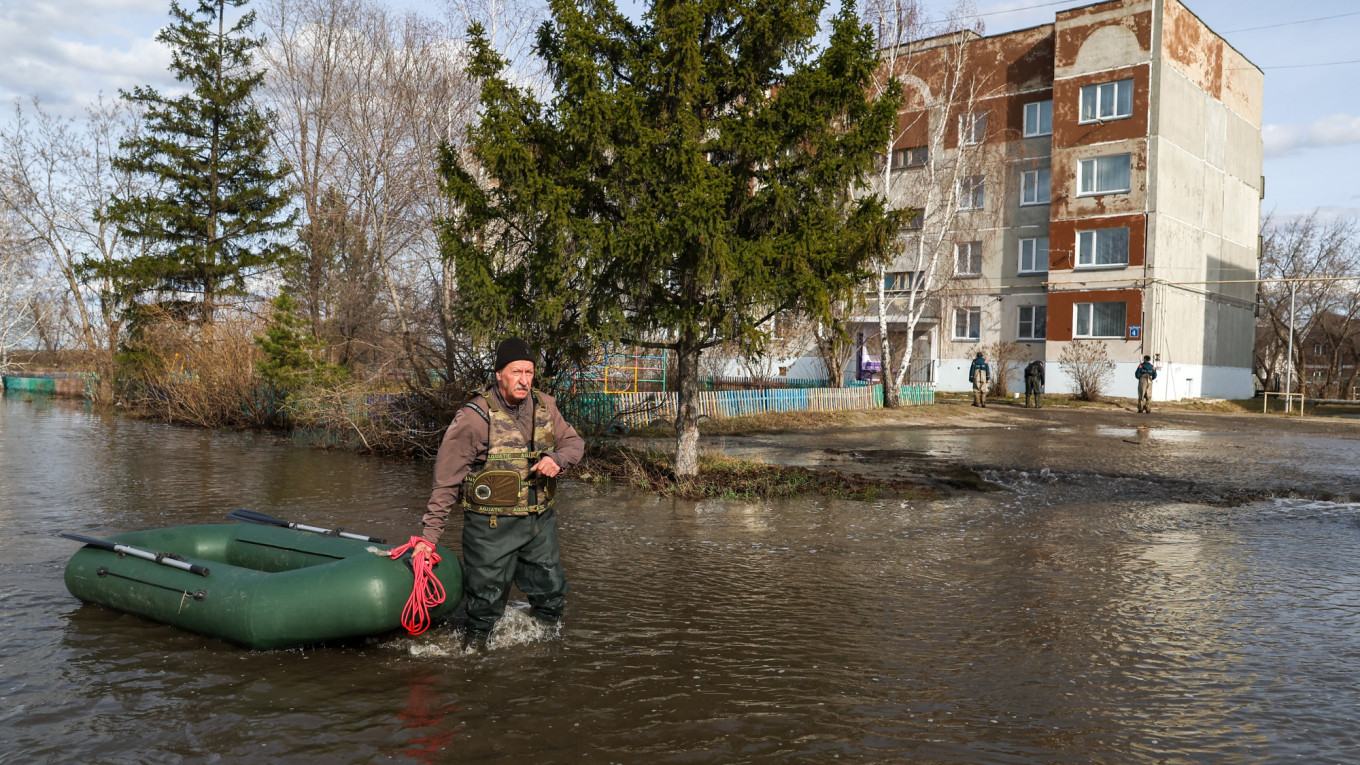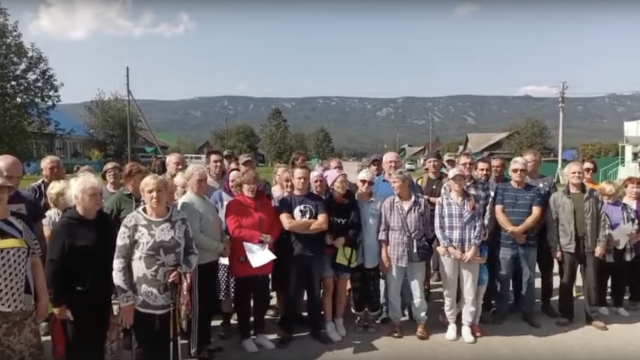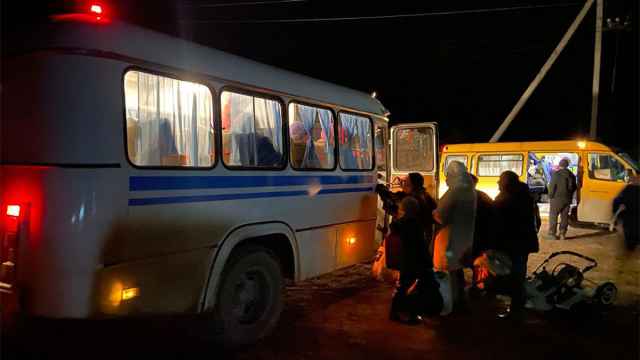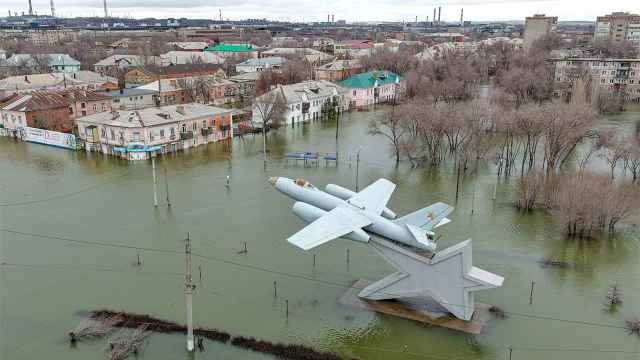What is driving the record-bad flooding that has devastated parts of Russia and Kazakhstan and forced tens of thousands of people to escape the fast-rising water?
AFP looks at the worst flooding in decades to hit this region:
Spring and snow
Spring floods in Russia and northern Kazakhstan "are to be expected and are a regular occurrence," said Maria Shahgedanova, a climate scientist at the University of Reading.
This region endured similar major floods in 1922, 1942 and 1957 though the current disaster was "extraordinary and all previous 'records' have been surpassed," she added.
The Ural River flooded Russia's Orenburg region in particular, while the Ishim — which feeds the Siberian regions of Tyumen and Omsk, and northern Kazakhstan — also burst its banks.
The cause is primarily the rapid onset of warm spring weather meeting lots of winter snow, causing a sudden melt and quick filling of rivers.
Shahgedanova said about half of all floods in this region have started this way, with another third attributed to rainfall and about 15% due to ice blockages in rivers.
'Perfect storm'
This region of Russia and Kazakhstan experienced above-average snowfall this past winter, with snow depth exceeding normal levels by 60% in some areas.
Shahgedanova said this was followed by a sudden jump in temperatures from below zero to nearly 20 degrees Celsius in a matter of days as spring arrived.
This rapid shift compounded by heavy rainfall "exacerbated the already critical situation" by quickly turning that excess snow into enormous volumes of water.
"This is a case of a perfect storm," she said.
What about climate change?
Scientists are in agreement that global warming caused by rising levels of greenhouse gases in the atmosphere is driving more extreme weather, including floods.
But "there is no clear trend towards more frequent floods" in this particular part of Russia and Kazakhstan, said Shahgedanova.
"I would attribute it... to climatic variability, as opposed to a more long-term change, which may be a natural process," she said.
A clearer link has been established between global warming and the increased likelihood of floods during the winter months in northwestern Europe, Shahgedanova added.
"The link between the 2024 floods in Russia and climate change is less obvious," she told AFP.
Warmer planet
A warmer planet could, however, be stoking the conditions that might make these floods more intense.
The UN's climate science body, the IPCC, has reported a substantial decrease in snow cover in the northern hemisphere since the late 1970s with that decline expected to continue.
"However, there are regional variations in this general trend," Shahgedanova said, adding that in the Volga-Urals and western Siberia heavier but shorter-lived snowfall is forecast in the future.
At the same time, the IPCC forecasts that temperatures will rise across the planet, with some flood-prone parts of Russia and Kazakhstan to warm at above-average rates during the winter.
"A combination of deeper snowpack... and earlier and very rapid melt may contribute to the potentially more frequent occurrence of spring floods," she said.
Other factors?
Human influences, too, have played a part.
The bursting of a dam in Orsk, a city of 220,000 near the border of Kazakhstan, caused thousands of homes to be flooded.
"The main factor in these floods is nature. But the problems of dike construction also matter," said Mikhail Bolgov, a hydrologist at the Russian Academy of Sciences, interviewed by Russian media.
A reservoir upstream could have absorbed part of the floodwaters but it was already partly full, according to Dmitri Boldyrev, a human rights defender quoted by Russian media.
"The employees were alarmed enough in January to ask management to begin the flow of water. But they did not want to [do that] because the previous year, there was not enough water," he said.
An investigation into negligence and violation of safety standards during construction of the dam has been opened.
In Orenburg, another urban center on the Ural River, some residents also pointed out that large complexes were built — in defiance of regulations — in flood zones.
A Message from The Moscow Times:
Dear readers,
We are facing unprecedented challenges. Russia's Prosecutor General's Office has designated The Moscow Times as an "undesirable" organization, criminalizing our work and putting our staff at risk of prosecution. This follows our earlier unjust labeling as a "foreign agent."
These actions are direct attempts to silence independent journalism in Russia. The authorities claim our work "discredits the decisions of the Russian leadership." We see things differently: we strive to provide accurate, unbiased reporting on Russia.
We, the journalists of The Moscow Times, refuse to be silenced. But to continue our work, we need your help.
Your support, no matter how small, makes a world of difference. If you can, please support us monthly starting from just $2. It's quick to set up, and every contribution makes a significant impact.
By supporting The Moscow Times, you're defending open, independent journalism in the face of repression. Thank you for standing with us.
Remind me later.






